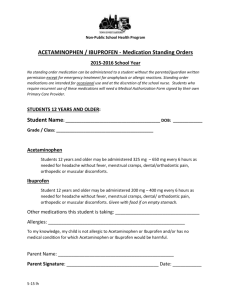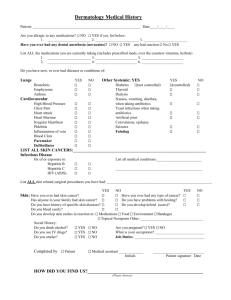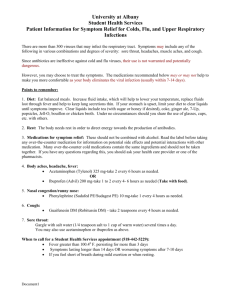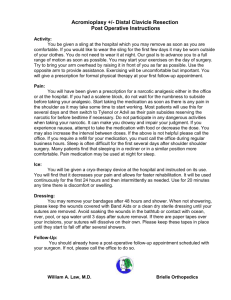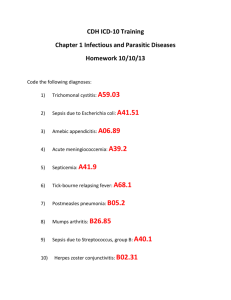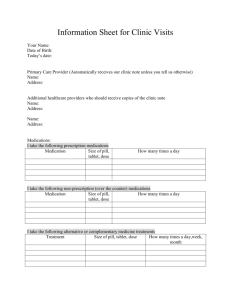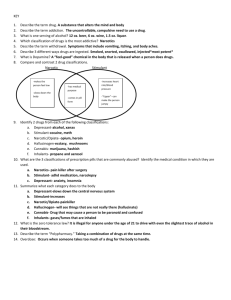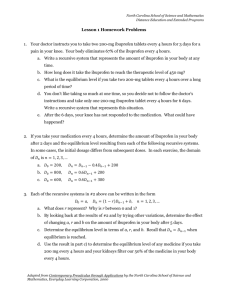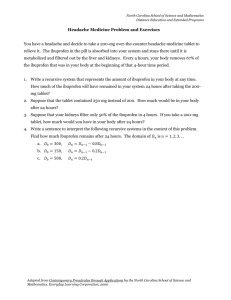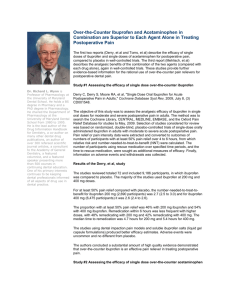Medication Instructions - Follmar Oral and Maxillofacial Surgery
advertisement
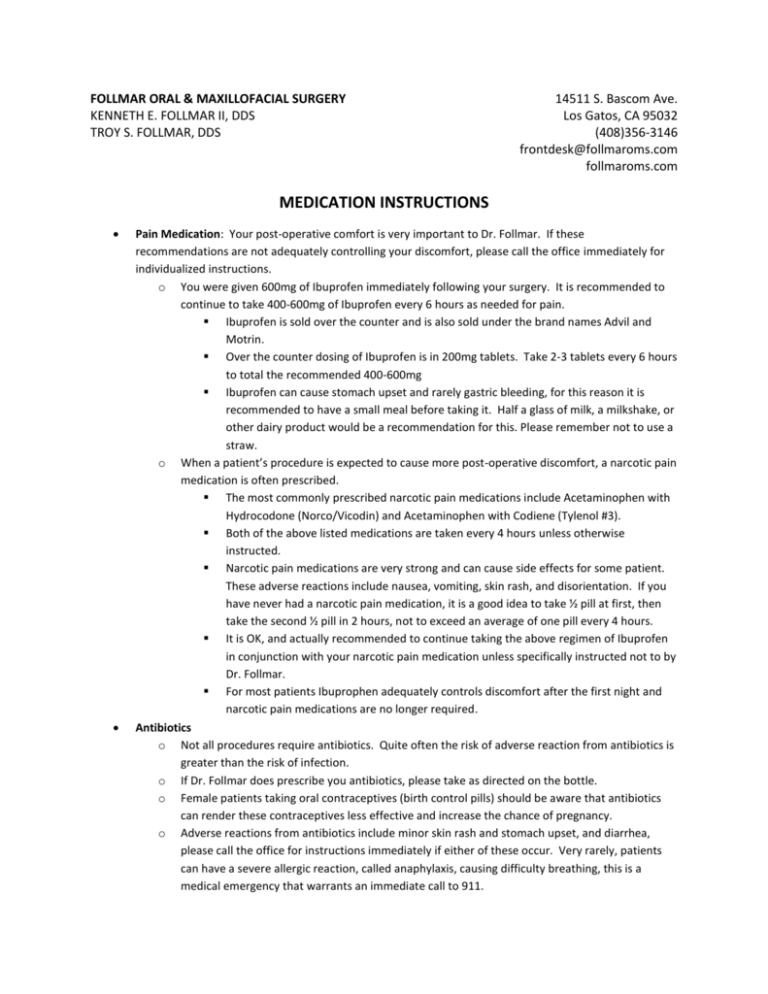
FOLLMAR ORAL & MAXILLOFACIAL SURGERY KENNETH E. FOLLMAR II, DDS TROY S. FOLLMAR, DDS 14511 S. Bascom Ave. Los Gatos, CA 95032 (408)356-3146 frontdesk@follmaroms.com follmaroms.com MEDICATION INSTRUCTIONS Pain Medication: Your post-operative comfort is very important to Dr. Follmar. If these recommendations are not adequately controlling your discomfort, please call the office immediately for individualized instructions. o You were given 600mg of Ibuprofen immediately following your surgery. It is recommended to continue to take 400-600mg of Ibuprofen every 6 hours as needed for pain. Ibuprofen is sold over the counter and is also sold under the brand names Advil and Motrin. Over the counter dosing of Ibuprofen is in 200mg tablets. Take 2-3 tablets every 6 hours to total the recommended 400-600mg Ibuprofen can cause stomach upset and rarely gastric bleeding, for this reason it is recommended to have a small meal before taking it. Half a glass of milk, a milkshake, or other dairy product would be a recommendation for this. Please remember not to use a straw. o When a patient’s procedure is expected to cause more post-operative discomfort, a narcotic pain medication is often prescribed. The most commonly prescribed narcotic pain medications include Acetaminophen with Hydrocodone (Norco/Vicodin) and Acetaminophen with Codiene (Tylenol #3). Both of the above listed medications are taken every 4 hours unless otherwise instructed. Narcotic pain medications are very strong and can cause side effects for some patient. These adverse reactions include nausea, vomiting, skin rash, and disorientation. If you have never had a narcotic pain medication, it is a good idea to take ½ pill at first, then take the second ½ pill in 2 hours, not to exceed an average of one pill every 4 hours. It is OK, and actually recommended to continue taking the above regimen of Ibuprofen in conjunction with your narcotic pain medication unless specifically instructed not to by Dr. Follmar. For most patients Ibuprophen adequately controls discomfort after the first night and narcotic pain medications are no longer required. Antibiotics o Not all procedures require antibiotics. Quite often the risk of adverse reaction from antibiotics is greater than the risk of infection. o If Dr. Follmar does prescribe you antibiotics, please take as directed on the bottle. o Female patients taking oral contraceptives (birth control pills) should be aware that antibiotics can render these contraceptives less effective and increase the chance of pregnancy. o Adverse reactions from antibiotics include minor skin rash and stomach upset, and diarrhea, please call the office for instructions immediately if either of these occur. Very rarely, patients can have a severe allergic reaction, called anaphylaxis, causing difficulty breathing, this is a medical emergency that warrants an immediate call to 911.
